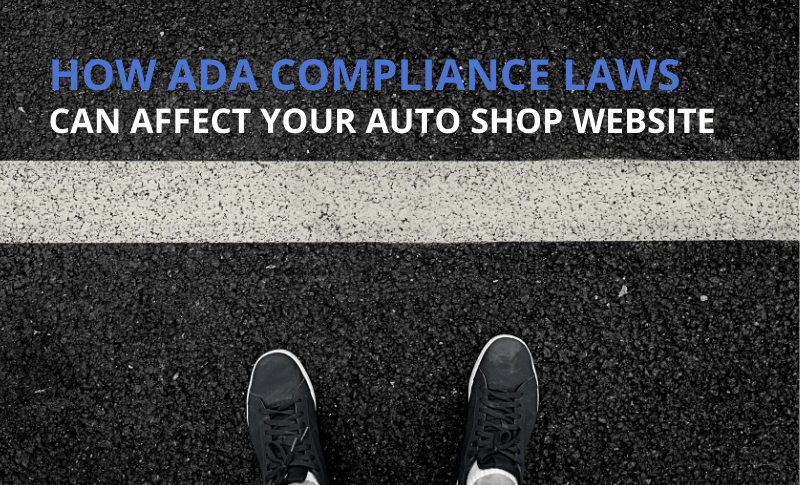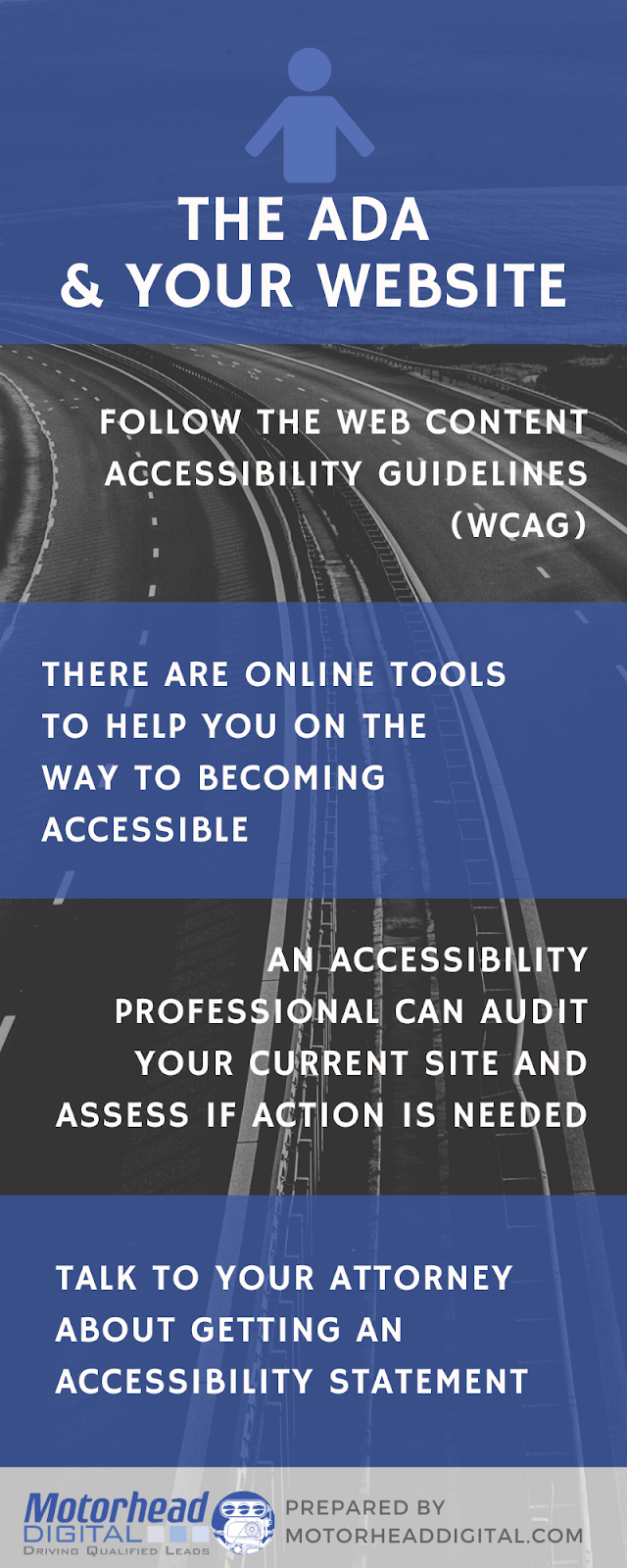Being accessible isn’t just for physical stores anymore and if your website doesn’t cater to everybody’s needs then you could be at risk of a lawsuit.
Barry Alt
![]()

Barry Alt
If you have a website, you can be sued for not being accessible.
No, we’re not being alarmist.
With news that Domino’s pizza recently got sued due to falling foul of accessibility laws, everyone with a website is at risk of being sued.
Being accessible isn’t just for physical stores anymore and if your website doesn’t cater to everybody’s needs then you could be at risk of a lawsuit.
We know that this may sound a bit crazy but trust us when we say that you could be sued if your website isn’t up to browsing standards fit for all users.
A new law was recently passed as part of the Americans with Disability Act (ADA), which states that everybody should have equal rights to access online information and services.
This law isn’t restricted to large businesses either. Whether you’re a small start-up or a one-man store, if your website doesn’t work to this law’s standards, you could be sued just as easily as any of those big brands out there.
Some of the companies that have been sued already include: Target, Weight Watchers, Home Depot, Bank Of America and so many more. Some smaller businesses have even been put out of business because their websites didn’t reach the accessibility standards.
In 2018 alone there were 2,285 lawsuits filed under the ADA and this number will only grow unless businesses start making their websites accessible for all.
Being accessible is no longer optional, if you don’t update to be user-friendly, you can now face the consequences of a lawsuit.
With this law now being enforced so strictly, you probably have questions about it. So we’re here to answer the most common questions about the ADA for you.
The Americans with Disabilities Act (ADA) was signed into law by George W. Bush on July 26, 1990. It’s a law that prohibits discrimination against people with disabilities.
The law originally didn’t cover anything about websites as it was written in 1990. It does, however, prohibit any company from raising barriers in communication that could restrict access for some people. In 2019, it’s now being used against companies whose websites are not accessible to all.

The internet is used by people every day for every aspect of their lives. You can book appointments on the internet, reserve a table at a restaurant and order products from online stores. Think about all the daily tasks you can now take care of online – from banking, shopping and preparing your taxes to watching films, studying and listening to music – everything is available online.
Now think about it like this: let’s say you were trying to complete one of your daily tasks but the website you’re trying to use isn’t working correctly. This will hinder your productivity for the day and cause you to become frustrated at not being able to complete your task.
This is why Title III of the ADA has moved from being an injunction with just brick and mortar stores to include online stores as well. People with disabilities need to have access to all websites and online services to be able to complete their daily tasks.
There are people who need the assistance of devices like screen readers, voiceover software and Braille output devices in order to access the internet.
If your website doesn’t comply with certain accessibility rules and regulations, these devices will not be able to work with your site – meaning the visitor won’t be able to access the site at all.
This will cause them to leave the site, losing you a customer, or worse, lodging a complaint and initiating a lawsuit against you and your company.
ADA law states that notice does not have to be given to you before a lawsuit is filed. This means you won’t be given any chance to defend yourself initially, which is why it is important to ensure your website is accessible before you get sued.
If you wear glasses or use contact lenses to read then you are using what is called assistive technology. Assistive technology is created in order to help those with any sort of disability access the web as easily as somebody without a disability.
Some of the most popular assistive technologies are glasses – helping people with visual impairments – as well as screen readers for those who have low vision or legal blindness and can’t see their device’s screen.
For people who have impaired hearing, closed captioning of any audio on your website must be provided.
There are some users who have a physical disability and may not be able to use a keyboard or a mouse and instead use equipment like head pointers, devices that track eye movement and software that turns text into speech. It’s often the case that people who have dyslexia or other learning disabilities will also use text to speech software to assist them in reading webpages.
In order to make sure that all the visitors to your site are able to use your website, you need to be able to work alongside these assistive technologies.
Pro Tip: You should follow the Web Content Accessibility Guidelines (WCAG) to ensure that your website is fully accessible. Published in 2008 these guidelines showcase the criteria you should address in order to make your site accessible for people with disabilities…
Please head on over to the Motorhead Digital Blog for the rest of this article.
Barry is the founder of Motorhead Digital, providing signature Marketing Maximizer™ programs specifically developed for auto restoration, performance and restyling shops. These programs are geared towards customer acquisition and conversion to keep those project bookings coming. With over 23 years of experience in digital marketing and web development, Barry’s goal is to help clients market and grow their shops through strategic marketing practices. You can reach him at (585) 766-9785, [email protected] or online at MotorheadDigital.com